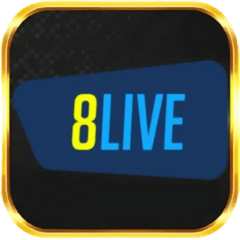
Thương Hiệu Uy Tín
Thương hiệu uy tín hàng đầu trên thị trường.

Đa Dạng Sản Phẩm
Nhiều game giải trí như Casino, Thể thao, Bắn cá…

An Ninh Bảo Mật
Sử dụng công nghệ bảo mật hiện đại, an toàn..

Giao Dịch Tức Thì
Giao dịch nạp rút được xử lý ngay lập tức…
868VIP – Sân Chơi Cá Cược & Game Bài Được Yêu Thích Nhất 2025
868VIP là điểm đến lý tưởng cho những ai đam mê cá cược trực tuyến và game bài đổi thưởng, khẳng định vị thế dẫn đầu trong ngành giải trí trực tuyến năm 2025. Với sự uy tín vượt trội, danh mục trò chơi đa dạng từ cá cược thể thao, casino trực tuyến, game bài đổi tiền thật đến slot game nổ hũ, 868VIP mang đến trải nghiệm giải trí đỉnh cao, an toàn và công bằng.
Các chương trình khuyến mãi hấp dẫn cùng dịch vụ khách hàng chuyên nghiệp càng làm tăng sức hút của 868VIP, biến đây thành sân chơi được yêu thích nhất hiện nay.

Tại Sao 868VIP Trở Thành Sân Chơi Cá Cược & Game Bài Hàng Đầu 2025?
868VIP không chỉ là một nhà cái trực tuyến thông thường mà còn là biểu tượng của sự uy tín và chất lượng trong ngành cá cược và game bài đổi thưởng. Dưới đây là những yếu tố làm nên tên tuổi của 868VIP:
Uy Tín và Pháp Lý
868VIP hoạt động dưới sự cấp phép của các tổ chức quản lý cờ bạc quốc tế uy tín như PAGCOR (Philippines) và Isle of Man Gambling Supervision Commission. Điều này đảm bảo mọi hoạt động của 868VIP đều minh bạch, hợp pháp và tuân thủ các tiêu chuẩn nghiêm ngặt. Hệ thống bảo mật sử dụng công nghệ mã hóa SSL 128-bit, bảo vệ thông tin cá nhân và giao dịch tài chính của người chơi khỏi mọi rủi ro.
Ví dụ, khi bạn thực hiện giao dịch nạp hoặc rút tiền, 868VIP cam kết xử lý trong vòng 5-10 phút với độ an toàn tuyệt đối, giúp 868VIP trở thành nhà cái uy tín 2025 được hàng triệu người chơi tin tưởng.So với các nhà cái khác, 868VIP nổi bật với chính sách bảo mật rõ ràng và cam kết không chia sẻ dữ liệu người chơi với bên thứ ba. Sự gia tăng của các vụ vi phạm dữ liệu khiến điều này trở nên cực kỳ cần thiết, khiến người chơi luôn tìm kiếm một cổng game bảo mật như 868VIP.
Đa Dạng Trò Chơi
Một trong những điểm mạnh lớn nhất của 868VIP là danh mục trò chơi phong phú, đáp ứng mọi sở thích của người chơi. Từ những trận đấu thể thao kịch tính, sòng bạc trực tuyến chân thực đến các ván bài đổi thưởng đầy hấp dẫn, 868VIP mang đến tất cả:
- Cá cược thể thao: Hàng nghìn trận đấu mỗi ngày với các môn thể thao phổ biến như bóng đá, bóng rổ, tennis, cầu lông. 868VIP cung cấp đa dạng kèo cược như kèo châu Á, kèo châu Âu, kèo tài xỉu, với tỷ lệ cược cạnh tranh.
- Casino trực tuyến: Trải nghiệm sòng bạc thực tế với người chia bài thật qua các trò chơi như Baccarat, Roulette, Blackjack, Sic Bo. Các sảnh live casino hợp tác với các nhà cung cấp hàng đầu như Evolution Gaming.
- Game bài đổi thưởng: Bộ sưu tập game bài phong phú bao gồm Tiến Lên Miền Nam, Phỏm, Sâm Lốc, Liêng, với giao diện thân thiện và cơ chế đổi thưởng nhanh chóng.
- Slot game: Hàng trăm trò slot với chủ đề đa dạng, từ cổ điển đến hiện đại, đi kèm jackpot lũy tiến mang lại cơ hội trúng thưởng lớn.
- Xổ số & lô đề: Tỷ lệ trả thưởng cao, hỗ trợ các hình thức từ xổ số truyền thống đến lô đề siêu tốc.
- Esports: Cá cược các giải đấu lớn của Liên Minh Huyền Thoại, Dota 2, CS:GO, với tỷ lệ cược hấp dẫn.
Sự đa dạng này giúp 868VIP vượt xa các đối thủ, mang lại trải nghiệm cá cược trực tuyến toàn diện cho mọi đối tượng người chơi.

Ưu Đãi và Khuyến Mãi
868VIP không ngừng làm mới các chương trình khuyến mãi để giữ chân người chơi và thu hút thành viên mới. Một số ưu đãi nổi bật bao gồm:
- Thưởng nạp lần đầu: Nhận 100% giá trị nạp, tối đa 5 triệu đồng, cùng 50 vòng quay miễn phí tại các slot game.
- Hoàn trả cược: Hoàn trả 1-2% tổng cược mỗi tuần, áp dụng cho mọi loại hình cá cược và game bài.
- Sự kiện đặc biệt: Tham gia các giải đấu casino, event game bài hoặc các chương trình quay số may mắn để nhận thưởng giá trị như tiền mặt, điện thoại, hoặc xe máy.
- Chương trình VIP: Thành viên VIP được hưởng hoàn trả cao hơn, quà tặng sinh nhật và hỗ trợ ưu tiên.
So với các nhà cái khác, 868VIP nổi bật với tần suất và giá trị khuyến mãi, giúp người chơi tối đa hóa lợi nhuận. Các chương trình khuyến mãi nhà cái được thiết kế phù hợp với cả người chơi mới và thành viên lâu năm.
Dịch Vụ Khách Hàng 24/7
868VIP sở hữu đội ngũ hỗ trợ khách hàng chuyên nghiệp, hoạt động liên tục 24/7 qua nhiều kênh như chat trực tuyến, email ([email protected]) và hotline. Dù bạn gặp vấn đề về đăng ký tài khoản, nạp/rút tiền hay cần hướng dẫn chơi, đội ngũ này luôn sẵn sàng giải đáp nhanh chóng và tận tình. Ví dụ, nếu bạn gặp khó khăn trong việc xác minh tài khoản, chỉ cần liên hệ qua chat trực tuyến, nhân viên sẽ hỗ trợ ngay lập tức, đảm bảo trải nghiệm hỗ trợ khách hàng 24/7 mượt mà.

Hướng Dẫn Tham Gia Sân Chơi 868VIP
Để bắt đầu trải nghiệm tại 868VIP, bạn chỉ cần thực hiện một vài bước đơn giản từ đăng ký tài khoản, đăng nhập, nạp tiền đến rút tiền. Hướng dẫn cụ thể được cung cấp bên dưới:
Đăng Ký Tài Khoản
Việc tạo tài khoản tại 868VIP được thiết kế nhanh chóng và dễ dàng, phù hợp với mọi người chơi:
- Truy cập trang chủ: Mở trình duyệt và truy cập vào trang chủ chính thức của 868VIP (đảm bảo bạn sử dụng đúng link để tránh các trang giả mạo).
- Nhấn nút “Đăng Ký”: Nút này thường nằm ở góc trên cùng bên phải của giao diện.
- Điền thông tin: Cung cấp các thông tin cần thiết như tên đăng nhập, mật khẩu, email, số điện thoại và mã xác minh (nếu có). Vui lòng cung cấp thông tin chính xác để hỗ trợ xác minh dễ dàng trong tương lai.
- Xác nhận: Đồng ý với các điều khoản và điều kiện, sau đó nhấn “Đăng Ký” để hoàn tất. Bạn sẽ nhận được thông báo xác nhận tài khoản thành công.
Quá trình cách đăng ký 868VIP chỉ mất khoảng 2-3 phút và hoàn toàn miễn phí. Sau khi đăng ký, bạn có thể nhận ngay khuyến mãi thành viên mới như thưởng nạp lần đầu.

Hướng Dẫn Đăng Nhập
Sau khi tạo tài khoản, bạn có thể đăng nhập bất kỳ lúc nào để bắt đầu chơi:
- Truy cập trang chủ hoặc ứng dụng: Mở trang chủ 868VIP hoặc ứng dụng di động (nếu đã tải).
- Nhấn “Đăng Nhập”: Nhập tên đăng nhập và mật khẩu đã đăng ký.
- Xác minh (nếu cần): Trong một số trường hợp, hệ thống có thể yêu cầu mã OTP gửi qua email hoặc số điện thoại để đảm bảo an toàn.
- Hoàn tất: Nhấn “Đăng Nhập” để truy cập tài khoản và bắt đầu trải nghiệm các trò chơi.
Nếu quên mật khẩu, bạn có thể nhấp vào “Quên mật khẩu” và làm theo hướng dẫn để khôi phục. 868VIP đảm bảo quy trình đăng nhập an toàn và nhanh chóng.
Nạp Tiền
Để tham gia cá cược hoặc chơi game bài đổi thưởng, bạn cần nạp tiền vào tài khoản. 868VIP hỗ trợ nhiều phương thức nạp tiền tiện lợi:
- Chọn phương thức nạp tiền: Tại giao diện tài khoản, vào mục “Nạp Tiền” và chọn phương thức như chuyển khoản ngân hàng (Vietcombank, Techcombank, BIDV), ví điện tử (Momo, ZaloPay), hoặc thẻ cào điện thoại.
- Nhập số tiền: Chọn số tiền muốn nạp (tối thiểu thường từ 50.000 VNĐ) và điền thông tin theo yêu cầu.
- Xác nhận giao dịch: Thực hiện theo hướng dẫn để hoàn thành giao dịch. Với chuyển khoản ngân hàng, bạn cần chuyển tiền đến tài khoản được cung cấp bởi 868VIP và lưu ý ghi đúng nội dung chuyển khoản.
- Kiểm tra số dư: Tiền sẽ được cập nhật vào tài khoản trong vòng 3-5 phút.
Nạp tiền 868VIP được xử lý nhanh chóng, an toàn nhờ công nghệ mã hóa tiên tiến. Đặc biệt, khi nạp lần đầu, bạn sẽ nhận được thưởng 100% giá trị nạp, tối đa 5 triệu đồng.
Rút Tiền
Khi thắng cược hoặc tích lũy đủ tiền thưởng, bạn có thể rút tiền về tài khoản cá nhân một cách dễ dàng:
- Truy cập mục “Rút Tiền”: Vào phần quản lý tài khoản và chọn “Rút Tiền”.
- Chọn phương thức rút: 868VIP hỗ trợ rút tiền qua ngân hàng hoặc ví điện tử. Hãy đảm bảo tài khoản nhận tiền trùng khớp với thông tin đăng ký.
- Nhập số tiền: Chọn số tiền muốn rút (tối thiểu thường từ 100.000 VNĐ) và điền thông tin cần thiết.
- Xác nhận: Vui lòng kiểm tra thông tin và bấm “Xác Nhận”. Hệ thống sẽ xử lý yêu cầu trong vòng 5-10 phút.
Rút tiền 868VIP được thực hiện nhanh chóng, với cam kết bảo mật tuyệt đối. Để đảm bảo giao dịch suôn sẻ, hãy hoàn tất xác minh tài khoản (nếu được yêu cầu) trước khi rút tiền.

Khám Phá Thế Giới Cá Cược & Game Bài Đa Dạng Tại 868VIP
868VIP mang đến một thế giới giải trí trực tuyến phong phú, nơi bạn có thể thỏa sức trải nghiệm các loại hình cá cược và game bài đổi thưởng. Dưới đây là chi tiết về các sảnh chơi nổi bật:
Cá Cược Thể Thao
868VIP là thiên đường cho những ai yêu thích cá độ bóng đá trực tuyến. Theo dõi hàng nghìn trận đấu mỗi ngày đến từ các giải lớn như Premier League, La Liga đến các giải nhỏ hơn, 868VIP cung cấp đa dạng kèo cược như kèo châu Á, kèo châu Âu, kèo tài xỉu, kèo tỷ số. Tỷ lệ cược được cập nhật liên tục, giúp người chơi dễ dàng đưa ra quyết định. Ngoài bóng đá, các môn thể thao khác như bóng rổ, tennis, cầu lông cũng được phủ sóng rộng rãi.
Ví dụ, nếu bạn muốn đặt cược cho trận đấu giữa Manchester United và Liverpool, 868VIP cung cấp hàng chục kèo cược với tỷ lệ hấp dẫn, từ kèo hiệp 1 đến kèo phạt góc. Điều này giúp 868VIP trở thành lựa chọn hàng đầu cho kèo nhà cái hôm nay.
Casino Trực Tuyến
Sảnh casino trực tuyến của 868VIP mang đến trải nghiệm sòng bạc chân thực với người chia bài thật qua các trò chơi như Baccarat, Roulette, Blackjack, Sic Bo. Các sảnh live casino hợp tác với các nhà cung cấp uy tín như Evolution Gaming, SA Gaming, đảm bảo chất lượng hình ảnh sắc nét, âm thanh sống động và tính công bằng tuyệt đối. Casino online uy tín tại 868VIP thu hút hàng nghìn người chơi mỗi ngày nhờ sự chuyên nghiệp và đa dạng.
Ví dụ, khi chơi Baccarat tại 868VIP, bạn có thể tương tác trực tiếp với dealer qua video HD, mang lại cảm giác như đang ngồi tại sòng bạc Las Vegas. Các trò chơi được thiết kế với nhiều mức cược, phù hợp cho cả người mới và cao thủ.

Game Bài Đổi Thưởng
868VIP sở hữu bộ sưu tập game bài đổi thưởng online phong phú, bao gồm các trò chơi quen thuộc như Tiến Lên Miền Nam, Phỏm, Sâm Lốc, Liêng, Poker. Các trò chơi được thiết kế với giao diện thân thiện, luật chơi rõ ràng và cơ chế đổi thưởng nhanh chóng qua nhiều hình thức như chuyển khoản ngân hàng, ví điện tử. Tính năng chơi cùng bạn bè hoặc đấu với người chơi khác trên toàn quốc càng làm tăng sự hấp dẫn.
So với các cổng game khác, 868VIP nổi bật với tốc độ xử lý giao dịch và tính minh bạch trong đổi thưởng. Ví dụ, sau khi thắng một ván Tiến Lên Miền Nam, bạn có thể rút tiền về tài khoản chỉ trong vài phút.
Slot Games
Với hàng trăm trò slot đa dạng chủ đề từ cổ điển (trái cây, kim cương) đến hiện đại (phiêu lưu, thần thoại), 868VIP là thiên đường cho những ai yêu thích game slot đổi thưởng. Các slot game tại đây có tỷ lệ trả thưởng (RTP) cao, đi kèm jackpot lũy tiến mang lại cơ hội trúng thưởng lớn chỉ trong vài vòng quay. 868VIP hợp tác với các nhà cung cấp slot nổi tiếng như Pragmatic Play, Microgaming, đảm bảo chất lượng và tính công bằng.
Ví dụ, trò slot “Book of Ra” tại 868VIP không chỉ có đồ họa đẹp mắt mà còn cung cấp các vòng quay miễn phí, giúp người chơi tăng cơ hội chiến thắng. Nổ hũ online tại đây luôn là lựa chọn hàng đầu cho những ai muốn thử vận may.
Xổ Số & Lô Đề
868VIP cung cấp các hình thức xổ số online và lô đề trực tuyến với tỷ lệ trả thưởng hấp dẫn, từ xổ số miền Bắc, miền Nam, miền Trung đến lô đề siêu tốc. Người chơi có thể chọn số yêu thích và đặt cược dễ dàng qua giao diện trực quan. Tính minh bạch và tốc độ trả thưởng nhanh chóng giúp 868VIP trở thành điểm đến lý tưởng cho những ai yêu thích lô đề trực tuyến.
Ví dụ, tỷ lệ trả thưởng lô đề tại 868VIP có thể lên đến 1:99, cao hơn nhiều so với các nhà cái khác, mang lại lợi nhuận lớn cho người chơi.
Esports
Cá cược esports tại 868VIP bao gồm các tựa game đình đám như Liên Minh Huyền Thoại, Dota 2, CS:GO, Valorant. Người chơi có thể soi kèo LOL hoặc tham gia cá cược các giải đấu lớn như MSI, The International với tỷ lệ cược cạnh tranh. 868VIP cung cấp thông tin chi tiết về đội tuyển, lịch thi đấu và thống kê, giúp người chơi đưa ra quyết định chính xác.
Ví dụ, khi cá cược trận đấu giữa T1 và G2 Esports, 868VIP cung cấp các kèo cược như đội thắng, số mạng hạ gục, thời gian trận đấu, mang lại trải nghiệm cá cược esports đầy kịch tính.

Ưu Đãi Khủng Dành Cho Thành Viên Mới Tại 868VIP
868VIP luôn mang đến các chương trình khuyến mãi hấp dẫn, giúp người chơi tối đa hóa lợi nhuận và tận hưởng trải nghiệm giải trí trọn vẹn:
Chào Mừng Thành Viên Mới
Đăng ký tài khoản và nạp tiền lần đầu để nhận thưởng 100% giá trị nạp, tối đa 5 triệu đồng. Ngoài ra, người chơi mới còn được tặng 50 vòng quay miễn phí tại các slot game phổ biến. Khuyến mãi thành viên mới này là cơ hội tuyệt vời để khởi đầu hành trình tại 868VIP, giúp bạn có thêm vốn để khám phá các trò chơi yêu thích.
Khuyến Mãi Nạp Tiền Định Kỳ
Mỗi lần nạp tiền, bạn sẽ nhận thêm bonus 10-20% giá trị nạp, tùy thuộc vào chương trình. Ví dụ, nạp 1 triệu đồng có thể nhận thêm 200.000 đồng, giúp bạn có thêm cơ hội chiến thắng. Khuyến mãi nạp tiền tại 868VIP được cập nhật thường xuyên, phù hợp với cả người chơi thường xuyên và thỉnh thoảng.
Hoàn Trả Cược Thua
868VIP hoàn trả 1-2% tổng cược mỗi tuần, áp dụng cho mọi loại hình cá cược và game bài. Ví dụ, nếu bạn cược 10 triệu đồng trong tuần, bạn có thể nhận hoàn trả lên đến 200.000 đồng. Hoàn trả tiền cược giúp giảm thiểu rủi ro và mang lại cơ hội phục hồi vốn nhanh chóng.
Sự Kiện Đặc Biệt, Giải Đấu
Tham gia các giải đấu casino hoặc event game bài để nhận thưởng giá trị như tiền mặt, điện thoại iPhone, hoặc xe máy SH. Các sự kiện như giải đấu casino hoặc event game bài được tổ chức hàng tháng, thu hút hàng nghìn người chơi nhờ phần thưởng hấp dẫn và tính cạnh tranh cao.
Chương Trình VIP
Thành viên VIP của 868VIP được hưởng các đặc quyền như hoàn trả lên đến 3%, Nhận quà sinh nhật hấp dẫn cùng dịch vụ hỗ trợ ưu tiên từ đội ngũ CSKH. Chương trình VIP nhà cái là phần thưởng xứng đáng cho những người chơi trung thành, mang lại trải nghiệm cá cược đẳng cấp.

Thỏa Sức Cá Cược Mượt Mà Trên Tất Cả Nền Tảng
868VIP đảm bảo trải nghiệm giải trí liền mạch trên mọi thiết bị, từ máy tính để bàn, laptop đến điện thoại thông minh.
Nền Tảng Web
Giao diện web của 868VIP được thiết kế thân thiện, tối ưu cho mọi trình duyệt như Chrome, Safari, Firefox. Người chơi có thể truy cập nhanh chóng vào các sảnh cá cược, game bài hoặc slot game mà không cần cài đặt thêm phần mềm. Cá cược trực tuyến trên web tại 868VIP đảm bảo tốc độ tải nhanh, giao diện mượt mà và bảo mật cao.
Ứng dụng điện thoại di động cho iOS và Android
Tải ứng dụng 868VIP để chơi mọi lúc, mọi nơi. App hỗ trợ cả iOS và Android, với giao diện được tối ưu cho màn hình nhỏ nhưng vẫn giữ đầy đủ tính năng như trên web. Tải app cá cược từ 868VIP cho phép bạn theo dõi kèo cược, chơi game bài hoặc quay slot ngay trên điện thoại, với độ bảo mật tương đương phiên bản web.

Chứng Nhận & Đối Tác Của 868Vip
868VIP tự hào sở hữu các chứng nhận hoạt động hợp pháp từ các tổ chức uy tín như PAGCOR, Isle of Man Gambling Supervision Commission. Những chứng nhận này không chỉ khẳng định sự minh bạch mà còn đảm bảo quyền lợi cho người chơi. Ngoài ra, nhà cái hợp tác với các nhà cung cấp game hàng đầu như Evolution Gaming, Microgaming, Pragmatic Play, Playtech, mang đến trải nghiệm chơi game chất lượng cao và công bằng.

Các Câu Hỏi Thường Gặp Về 868VIP
Làm thế nào để đăng ký tài khoản tại 868VIP?
Truy cập trang chủ 868VIP, nhấp vào nút “Đăng Ký” và điền các thông tin như tên, email, số điện thoại. Quy trình chỉ mất 2 phút và hoàn toàn miễn phí. Cách đăng ký 868VIP được thiết kế đơn giản để phù hợp với mọi người chơi.
Nạp và rút tiền tại 868VIP có an toàn không?
Nhà cái sử dụng công nghệ mã hóa tiên tiến để bảo vệ mọi giao dịch. Nạp tiền 868VIP hỗ trợ nhiều phương thức như ngân hàng, ví điện tử, thẻ cào, với thời gian xử lý chỉ 3-5 phút. Rút tiền 868VIP cũng được thực hiện nhanh chóng, thường trong vòng 10 phút.
868VIP có uy tín không?
Với giấy phép hợp pháp, hệ thống bảo mật hiện đại và hàng triệu người chơi tin tưởng, 868VIP là nhà cái uy tín 2025. Các đánh giá từ cộng đồng người chơi trên các diễn đàn cá cược cũng khẳng định độ tin cậy vượt trội.
Làm thế nào để liên hệ hỗ trợ 868VIP?
Liên hệ qua chat trực tuyến trên trang web https://www.abdimmo.com/, email ([email protected]), hoặc hotline hoạt động 24/7. Đội ngũ hỗ trợ luôn luôn sẵn sàng giải đáp mọi thắc mắc, đảm bảo trải nghiệm của người chơi luôn được hỗ trợ một cách hiệu quả.
Các trò chơi tại 868VIP có công bằng không?
Tất cả trò chơi tại 868VIP đều sử dụng công nghệ RNG (Random Number Generator) để đảm bảo tính ngẫu nhiên và công bằng. Các nhà cung cấp game hợp tác với 868VIP cũng được kiểm tra định kỳ bởi các tổ chức độc lập.
Kết Luận
868VIP không chỉ là một sân chơi cá cược trực tuyến mà còn là nơi hội tụ đam mê, mang đến trải nghiệm giải trí đỉnh cao cho mọi người chơi. Với sự uy tín được khẳng định qua các chứng nhận quốc tế, danh mục trò chơi đa dạng từ cá cược thể thao, casino trực tuyến, game bài đổi thưởng đến slot game và esports, nhà cái đáp ứng mọi nhu cầu giải trí của người chơi. Các chương trình khuyến mãi hấp dẫn, dịch vụ hỗ trợ khách hàng 24/7 và nền tảng công nghệ hiện đại càng làm tăng giá trị của 868VIP, biến đây thành lựa chọn hàng đầu trong năm 2025.
Hãy tham gia ngay 868VIP để khám phá thế giới cá cược và game bài đầy phấn khích! Với quy trình đăng ký đơn giản, giao dịch an toàn và hàng loạt ưu đãi độc quyền, nhà cái cam kết mang lại cho bạn những giây phút giải trí đáng nhớ và cơ hội kiếm thưởng hấp dẫn. Đừng chần chừ, đăng ký ngay hôm nay để trở thành một phần của cộng đồng 868VIP!





































